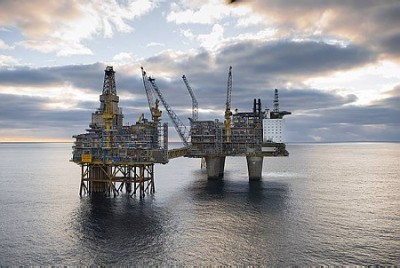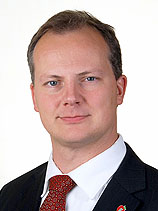Norway’s enormous sovereign wealth fund, known as the “oil fund,” looks set to be split up into several different funds if a new, non-socialist government takes over after the September 9 national election. All of its potential members think some fund spin-offs can boost earnings and competition.

Today’s oil fund, officially known as Statens pensjonsfond – utland (the state pension fund that invests abroad), is made up of revenues from Norway’s oil and gas production that are stashed away for future generations. It’s grown enormously since being formed in the 1990s, thanks in part to high oil prices, and is expected to have average annual returns of 4 percent. That has in turn led to a rule that no more than 4 percent of the total size of the fund should be added to the state budget and spent in any given year.
The oil fund now amounts to around NOK 4,450 billion, and thus has become a major player in international stock markets and, more recently, real estate. Norway has gained clout as an international investor and the fund is managed through a unit of the country’s central bank, with investments subject to ethical guidelines set though the finance ministry, in turn part of the current left-center government coalition.
A string of public opinion polls suggest the Labour Party-led coalition is unlikely to win a third term in office, opening the way for a new conservative government coalition subject to election results. Now its potential party members are saying they want to make changes in how Norway’s oil fund is organized.

“We want more funds with slightly different mandates instead of having all the money in one big bag,” Ketil Solvik-Olsen, finance policy spokesman for the conservative Progress Party (Fremskrittspartiet, Frp), told newspaper Aftenposten on Tuesday. “We think that could increase returns on our oil fortune, strengthen Norwegian interests and contribute to competition among various fund managers.”
The Progress Party, which may join a conservative government coalition for the first time, wants to maintain one large fund with roughly the same assignment as today’s, but it wants to spin off the fund’s relatively new real estate investments into a separate entity. “We also want to establish some smaller funds to build up more specialized competence and in areas where Norway has strong interests,” Solvik-Olsen said. That could include a fund dedicated to investments within energy and environmental technology, for example, and one that would be actively managed by brokers outside of Norway’s financial center in Oslo.
Firms in, for example, Bergen, Trondheim and Stavanger “should operate with more active management of a portion of the fund,” Solvik-Olsen said. Another dedicated fund could invest in more high-risk projects, he added, in the world’s emerging markets.
The state-owned Norfund already does that, he noted, and other politicians who may win government power are talking about either transferring more money from the oil fund to Norfund, or placing Norfund itself under the central bank like the oil fund is now.
Hans Olav Syversen of the Christian Democrats party (Kristelig Folkeparti, KrF), another possible partner in a conservative coalition, wants Norway to invest more heavily in developing countries. “We have suggested setting up two new funds, one for investments in poor countries and one for environmental technology,” Syversen told Aftenposten.
The Conservative Party itself (Høyre), which seems most likely to lead a new non-socialist government, is open to splitting up the oil fund, with one fund concentrating on stock market investments and one fund on financial investments.
“We want an evaluation of this, but haven’t taken any position,” Jan Tore Sanner, deputy leader of the Conservatives and its finance spokesman, told news bureau NTB. He thinks more funds would also compete against each other for results.
The Liberal Party (Venstre), which in Norwegian politics in on the conservative side of the political spectrum, also wants a separate fund for investments in poor countries. “We’d have to agree on how this would be organized,” Guri Melby of the Liberals told Aftenposten. “The most important thing is to move away from fossil energy, which isn’t economically sustainable in the long term.”
Solvik-Olsen is confident that Norway’s non-socialist parties can agree on a restructuring of the oil fund. Its biggest single investments at present are in the corporations Nestlé, Shell, HSBC, Novartis, Apple, Roche Holding, BlackRock, BP, Sanofi and Exxon Mobil, according to oil fund reports filed as of December 31, 2012.
Views and News from Norway/Nina Berglund

